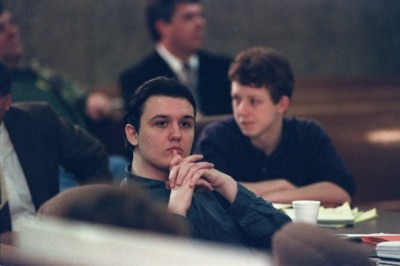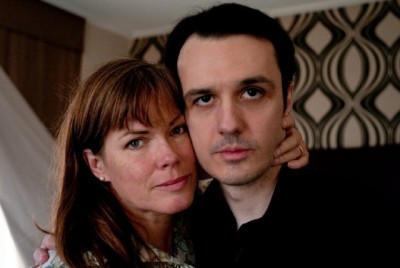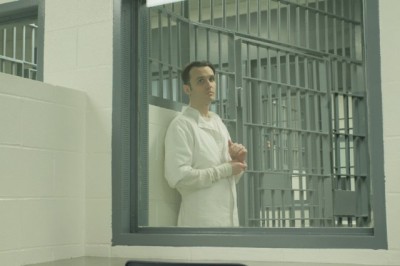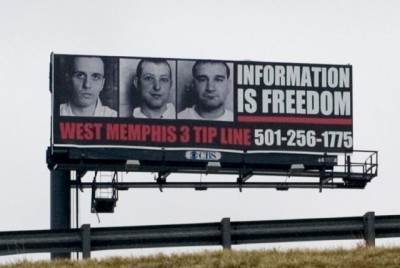
I believe it’s an established fact that I almost never watch documentaries by choice. (Sure, there are exceptions. I even had someone bring me a copy of Martin Scorsese’s George Harrison documentary, Living in the Material World, back from the U.K. before it was available here, but that was Scorsese and George Harrison.) Plus, I’m not big on “true crime” stuff in general, which is why there’s a nice box set of all three Paradise Lost documentaries — covering much the same material as West of Memphis — sitting unopened on a shelf. As a result of this — and the fact that I had only the sketchiest notion of the case — Amy Berg’s documentary played like an almost harrowing suspense tale for me. I suspect that was in the film’s favor. I was probably close to the perfect audience member for it. With that in mind, I’m going to suggest that anyone in the same position as I should take my word that this documentary works as truly compelling drama without reading further. Try as I may, I can find no way of discussing the film without giving too much away in the bargain.

If you have seen the earlier documentaries on the same case, you might well question the actual need for an additional film — especially at 147 minutes. I can’t authoritatively say, of course, but I have the impression that West of Memphis has more information, had greater access to the people involved and benefits from the distance of hindsight — without having to rehash material from earlier films. Plus, even with its running time, it’s considerably more compact than the other three films . Here you get the whole story — or at least the whole story according to the filmmakers, who are obviously sympathetic Damien Echols, Jason Baldwin and Jessie Misskelley, the three kids who were originally convicted of the murders of three 8-year-old boys — Stevie Branch, Christopher Byers and Michael Moore. Since the filmmakers — and apparently most people — now believe three were innocent of the 1993 crimes, that’s the approach they take.

All in all, the filmmakers present a compelling case for their innocence. Nearly every aspect of the original case is summarily picked apart — from the whole Satanic cult business to the handling of the evidence. While they may, however, go a little too far in defending Damien Echols’ character (aspects of his less than admirable behavior are raised early in the film, and then never addressed), the real question comes down to whether or not he was guilty. The film makes a convincing case — borne out by the weird face-saving plea bargain the state of Arkansas came up with rather than face a new trial and any lawsuits likely to be brought against them in light of the new (or even correctly examined) evidence.

It’s a sobering look at how the wheels of justice can be — and are — manipulated by political expediency and a small town’s tendrils of the old boy network. While the film finds a measure of solace for the three charged, it —out of necessity — since the state has no interest in pursuing the case — leaves hanging the question of the real murderer (who the film all but accuses) going free. I won’t say the film is perfect — the personalities who helped pursue the case can get pretty self-satisfied — and, of course, it’s not going to sway everyone. It does, however, make a solid case and is certainly a compelling viewing. Rated R for disturbing violent content and some language.
Starts Friday at Carolina Cinemas




I’ve seen all three Paradise Lost films, and have still been anticipating this one. At the same time, I’m not sure I feel like getting all worked up and angry about the absurdities involved in the case itself and the larger implications surrounding our media and justice system.
I can understand that. I’m anticipating possible backlash for believing the case the film makes. This looks like a perfect chance for the “read this link” brigade.
I’ve seen all three Paradise Lost films, and have still been anticipating this one.
I don’t think West of Memphis is much different from PL3: Purgatory. The turtle scenes were nice touches and the few new findings at the end distanced it some more, but little else is learned. I also think Berg loses a lot by not interviewing Baldwin or Misskelley in prison.
That said, I was still entranced throughout.
I also think Berg loses a lot by not interviewing Baldwin or Misskelley in prison.
I suspect this was not intentional. At the same time, I’m not sure I see much percentage in interviewing MissKelley any more than is done — and the film really doesn’t need to be any longer.
And this will be out of here come Friday.